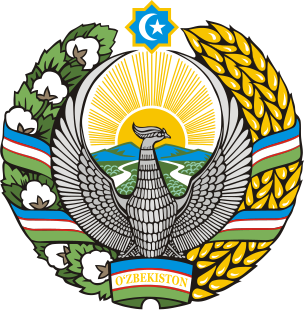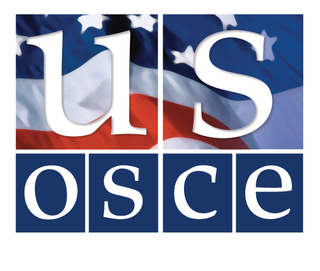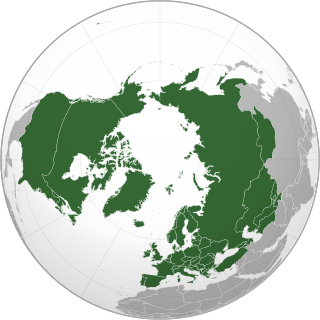
Foreign relations of Kazakhstan are primarily based on economic and political security. The Nazarbayev administration has tried to balance relations with Russia and the United States by sending petroleum and natural gas to its northern neighbor at artificially low prices while assisting the U.S. in the War on Terror. Kazakhstan is a member of the United Nations, Organization for Security and Co-operation in Europe, North Atlantic Cooperation Council, Commonwealth of Independent States, the Shanghai Cooperation Organisation, and NATO's Partnership for Peace program. Kazakhstan established a customs union with Russia and Belarus, transformed into the Eurasian Economical Community then in 2015 into the Eurasian Economic Union. President Nazarbayev has prioritized economic diplomacy into Kazakhstan's foreign policy.

Uzbekistan joined the Commonwealth of Independent States in December 1991. However, it is opposed to reintegration and withdrew from the CIS collective security arrangement in 1999. Since that time, Uzbekistan has participated in the CIS peacekeeping force in Tajikistan and in United Nations-organized groups to help resolve the Tajik and Afghan conflicts, both of which it sees as posing threats to its own stability. Uzbekistan is an active supporter of U.S. efforts against worldwide terrorism and joined the coalitions which have dealt with both Afghanistan and Iraq. It is a member of the United Nations, the Euro-Atlantic Partnership Council, Partnership for Peace, and the Organization for Security and Cooperation in Europe (OSCE). It belongs to the Organisation of Islamic Cooperation (OIC) and the Economic Cooperation Organization, which comprises 7 Central Asian countries: Pakistan, Uzbekistan, Kazakhstan, Turkmenistan, Afghanistan, Kyrgyzstan and Tajikistan. It is a founding member of and remains involved in the Central Asian Union, formed with Kazakhstan and Kyrgyzstan, joined in March 1998 by Tajikistan.

The Shanghai Cooperation Organization (SCO), or Shanghai Pact, is a Eurasian political, economic, and security alliance, the creation of which was announced on 15 June 2001 in Shanghai, China by the leaders of China, Kazakhstan, Kyrgyzstan, Russia, Tajikistan, and Uzbekistan; the Shanghai Cooperation Organisation Charter, formally establishing the organisation, was signed in June 2002 and entered into force on 19 September 2003. The original five nations, with the exclusion of Uzbekistan, were previously members of the Shanghai Five group, founded on 26 April 1996. Since then, the organisation has expanded its membership to eight countries when India and Pakistan joined SCO as full members on 9 June 2017 at a summit in Astana, Kazakhstan. The Heads of State Council (HSC) is the supreme decision-making body in the SCO, it meets once a year and adopts decisions and guidelines on all important matters of the organisation. Military exercises are also regularly conducted among members to promote cooperation and coordination against terrorism and other external threats, and to maintain regional peace and stability.

The National Endowment for Democracy (NED) is a U.S. non-profit soft power organization that was founded in 1983 with the stated goal of promoting democracy abroad. It is funded primarily through an annual allocation from the U.S. Congress in the form of a grant awarded through the United States Information Agency (USIA). It was created by The Democracy Program as a bipartisan, private, non-profit corporation, and in turn acts as a grant-making foundation. In addition to its grants program, NED also supports and houses the Journal of Democracy, the World Movement for Democracy, the International Forum for Democratic Studies, the Reagan–Fascell Fellowship Program, the Network of Democracy Research Institutes, and the Center for International Media Assistance.

Turkmenistan's human rights record has been heavily criticized by various countries and scholars worldwide. Standards in education and health declined markedly during the rule of President Saparmurat Niyazov.

The International Foundation for Electoral Systems (IFES) is an international, non-profit organization founded in 1987. This Washington, D.C.-based development organization provides assistance and support for elections in new and emerging democracies. Since 1987, IFES has provided assistance in 145 countries and it currently has programs in over 20 countries throughout Asia-Pacific, Africa, Eurasia, the Middle East and North Africa, and the Americas.

Human rights in Kazakhstan are uniformly described as poor by independent observers. Human Rights Watch says that "Kazakhstan heavily restricts freedom of assembly, speech, and religion. In 2014, authorities closed newspapers, jailed or fined dozens of people after peaceful but unsanctioned protests, and fined or detained worshipers for practicing religion outside state controls. Government critics, including opposition leader Vladimir Kozlov, remained in detention after unfair trials. Torture remains common in places of detention."

The Community of Democracies (CoD) is an intergovernmental coalition of states established in 2000. Its aim is to bring together governments, civil society and the private sector in the pursuit of the common goal of supporting democratic rules, expand political participation, advance and protect democratic freedoms, and strengthening democratic norms and institutions around the world. The task of more democracy is outlined in the Warsaw Declaration. It is disputed if the CoD qualifies as an International Organization in the legal sense.

John Edward Herbst is a retired American diplomat who was the United States Ambassador to Uzbekistan from 2000 to 2003 and United States Ambassador to Ukraine from September 2003 to May 2006. Herbst was married to Nadezda Christoff Herbst and has five children.

The United States and the Republic of Kazakhstan established diplomatic relations on December 16, 1991. The United States was the first country to recognize Kazakhstan's independence. The United States opened its embassy in Almaty in January 1992 and then relocated to Astana in 2006.
Igor Rotar is a Russian journalist. From 2003 to early 2007 he was the Central Asian news correspondent for Forum 18, a human rights organization based in Norway that promotes religious freedom. He is a Russian citizen.
The threat of terrorism in Kazakhstan plays an increasingly important role in relations with the United States which in 2006 were at an all-time high. Kazakhstan has taken Uzbekistan's place as the favored partner in Central Asia for both Russia and the United States. Kazakhstan's counter-terrorism efforts resulted in country's 94th ranking among 130 countries in the 2016 Global Terrorism Index published by the Institute of Economics and Peace. The higher the position on the ranking is, the bigger the impact of terrorism in the country. Kazakhstan's 94th place puts it in a group of countries with the lowest impact of terrorism.

Uzbek–American relations formally began when the United States recognized the independence of Uzbekistan on December 25, 1991, and opened an embassy in Tashkent in March 1992. U.S.-Uzbekistan relations developed slowly and reached a peak following the U.S. decision to invade Afghanistan following the September 11, 2001 attacks. Relations cooled significantly following the "color revolutions" in the former Soviet republics of Georgia, Ukraine, and Kyrgyzstan in 2003-2005, and the Government of Uzbekistan sought to limit the influence of U.S. and other foreign non-governmental organizations (NGOs) working on civil society, political reform, and human rights inside the country.

The Turkic Council (Azerbaijani: Türk Şurası; Kazakh: Түрік кеңесі, Turik Keńesi; Kyrgyz: Түрк кеңеш; Turkish: Türk Keneşi; Uzbek: Turkiy Kengash, Туркий Кенгаш; or, in full, the Cooperation Council of Turkic-Speaking States, is an international organization comprising some of the Turkic countries. It was founded on 3 October 2009 in Nakhchivan. The General Secretariat is in İstanbul, Turkey. The member countries are Azerbaijan, Kazakhstan, Kyrgyzstan, and Turkey. The remaining two Turkic states, Turkmenistan and Uzbekistan are not currently official members of the council due to their neutral stance; however, they are possible future members of the council. Uzbekistan announced its intention to join the council on 30 April 2018. The idea of setting up this cooperative council was first put forward by Kazakh President Nursultan Nazarbayev back in 2006.

The United States Mission to the Organization for Security and Cooperation in Europe represents the United States government in the Organization for Security and Cooperation in Europe (OSCE). Currently, the Deputy Chief of Mission, Harry Kamian, represents the United States at the OSCE and holds the title Chargé d’Affaires.
'Peter Zalmayev' is director of the Eurasia Democracy Initiative (EDI), an international non-profit organization dedicated to the promotion of democracy and human rights in post-Communist transitional societies of Eastern and Central Europe, the Caucasus and Central Asia.

Media freedom in the European Union is a fundamental right that applies to all member states of the European Union and its citizens, as defined in the EU Charter of Fundamental Rights as well as the European Convention on Human Rights. Within the EU enlargement process, guaranteeing media freedom is named a "key indicator of a country's readiness to become part of the EU".

Finland–Kazakhstan relations refers to the bilateral relations between Finland and Kazakhstan. Finland has an embassy in Astana whilst Kazakhstan has an embassy in Helsinki. Both countries are members of Organization for Security and Co-operation in Europe.

















